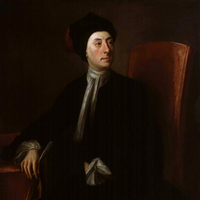The Chameleon
As the Chameleon, who is known
To have no colours of his own,
But borrows from his neighbour’s hue
His white or black, his green or blue,
And struts as much in ready light,
Which credit gives him upon sight,
As if the rainbow were entail
Settled on him and his heirs-male;
So the young 'squire, when first he comes
From country school to Will’s or Tom’s,
And equally in truth is fit
To be a statesman or a wit,
Without one notion of his own,
He saunters wildly up and down,
Till some acquaintance good or bad,
Takes notice of a staring lad,
Admits him in among the gang;
They jest, reply, dispute, harangue;
He acts and talks as they befriend him,
Smear’d with the colours which they lend him.
Thus merely as his fortune chances
His merit or his vice advances.
If haply the sect pursues
That read and comment upon news,
He takes up their mysterious face;
He drinks his coffee without lace:
This week his mimic tongue runs o’er
What they had said the week before;
His wisdom sets all Europe right,
And teaches Marlborough when to fight.
Or if it be his fate to meet
With folks who have more wealth than wit,
He loves cheap Port and double bub,
And settles in the Humdrum club:
He learns how stocks will fall or rise;
Holds poverty the greatest vice;
Thinks wit the bane of conversation,
And says that learning spoils a nation.
But if at first he minds his hits,
And drinks Champaigne among the wits,
Five deep he toasts the towering lasses,
Repeats yon verse wrote on glasses:
Is in the chair, prescribes the law,
And lies with those he never saw.

